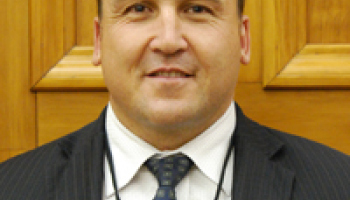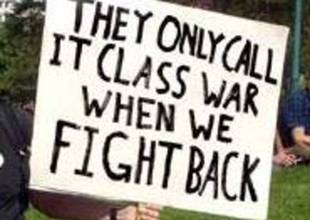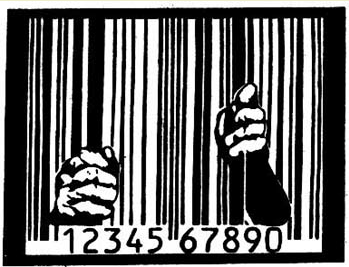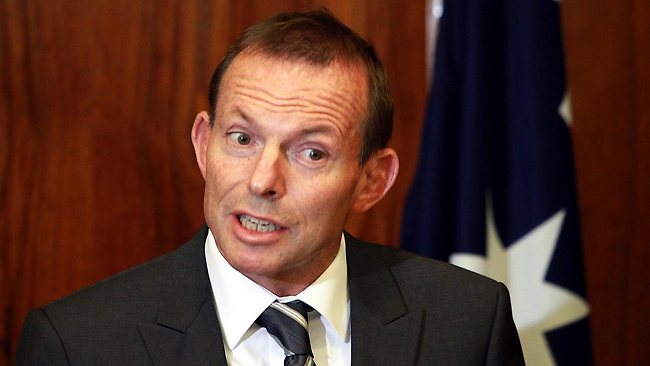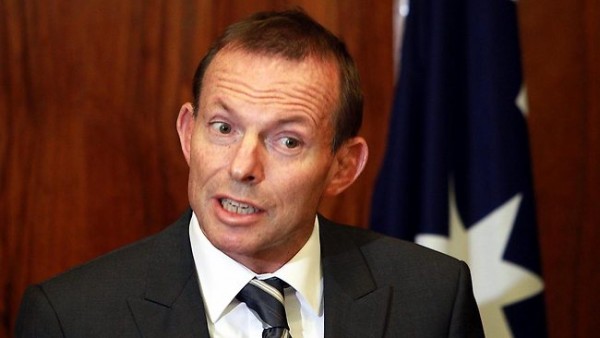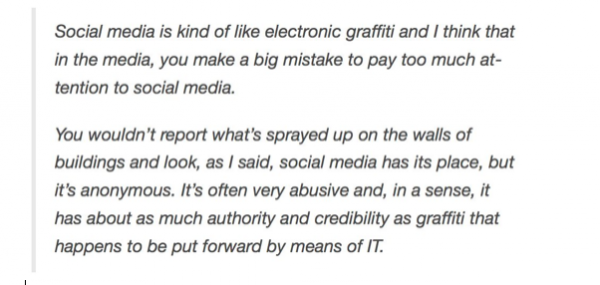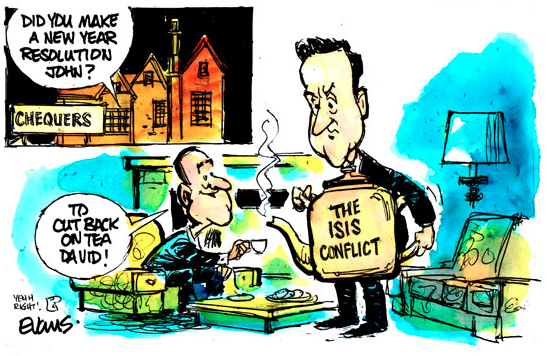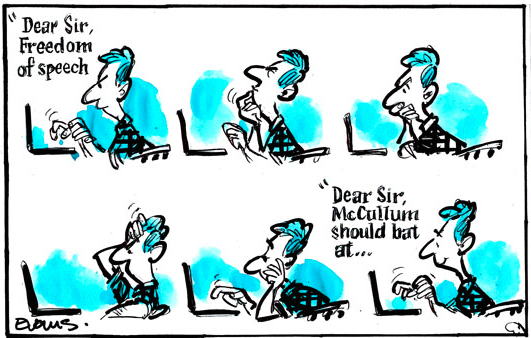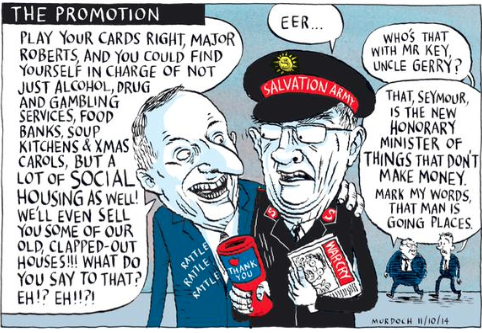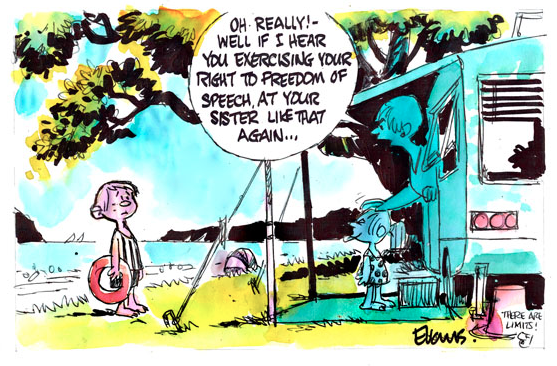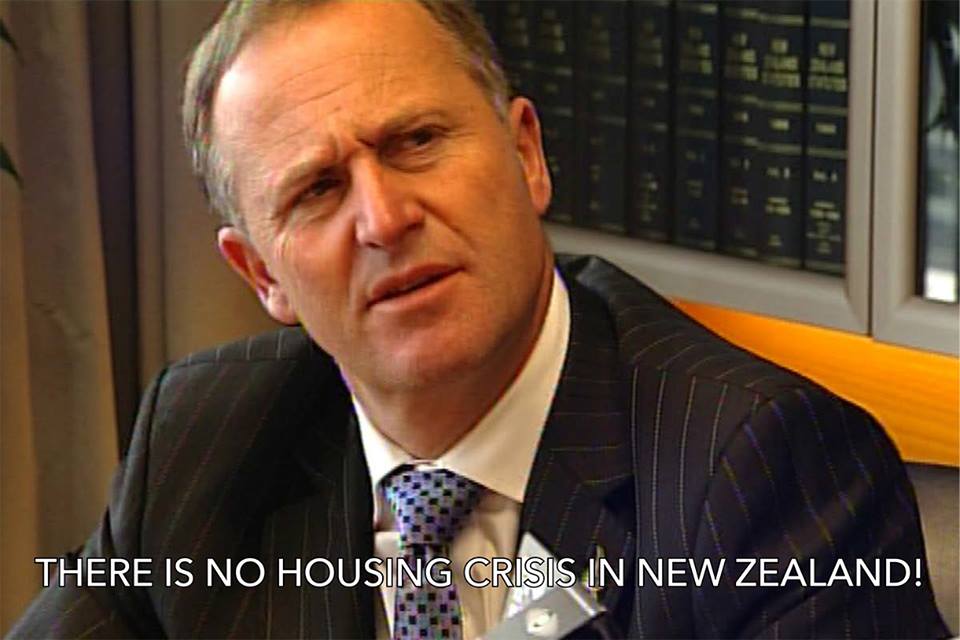
About Dr Martin Hirst
 Dr Martin Hirst is associate professor of journalism and multimedia in the School of Communication & Creative Arts, Deakin University. He is co-editor of the journal, Political Economy of Communication.
Dr Martin Hirst is associate professor of journalism and multimedia in the School of Communication & Creative Arts, Deakin University. He is co-editor of the journal, Political Economy of Communication.
Over the past 15 years Dr Hirst has led and taught journalism courses in Australia and New Zealand. From 2007-2011 he was head of journalism at AUT in Auckland. He was a 2008 Erasmus Mundus teaching fellow at City University London. He is co-author of Journalism Ethics: Arguments & Cases (2014 with Roger Patching) and Communication & New Media: Broadcast to Narrowcast (2014 with John Harrison & Patricia Mazepa) and News 2.0: Can journalism survive the Internet (2011). He contributes to numerous journals, magazines and blogss on journalism and society. You can find him at @ethicalmartini.
Dr Hirst’s research interests include journalism theory and practice; the reporting of terrorism; political economy of news and media; technology and relations of journalism practice; journalism, democracy and the public sphere; journalism law and ethics. He is currently involved in a range collaborative projects in journalism scholarship and education.
Eleanor Catton and the Sociocultural Logic of Kiwi Neoliberalism
ELEANOR CATTON was always going to be trouble. With her fine china good looks, transparent intelligence and uncharacteristic (for a Kiwi) articulateness, she was a political reprimand just waiting to happen. One had only to read her books or hear her speak to know that the same intuitive grasp of the human condition which had secured her the Man Booker Prize was never going to let her line-up alongside the vacuous celebrities that accessorise the power brokers of the Right.
Catton’s beauty is a significant factor in the current controversy. No matter how unfair, a regular set of human features confers a very special kind of power upon those fortunate enough to possess them. In a culture as saturated with advertising as our own, beauty has come to enjoy a mutually reinforcing relationship with authority. In a nutshell: beauty is believed, therefore, beauty sells. It also carries a potent sexual charge. Like it or not, messages, of whatever kind, have a much better chance of making it through our defences when they’re delivered by a George Clooney or a Scarlet Johansson.
That is why the Right becomes more than usually incensed when it is challenged by good-looking opponents. They know that their messages will reach the public unfiltered; that their audience will not be distracted by bad hair or crooked teeth. It’s been that way since (at least) 1960 when the handsome, tanned and supremely confident John F. Kennedy easily overcame the jowly pallor and five o’clock shadow of a perspiring Richard Nixon in the first televised presidential debate. (Interestingly, those listening to the debate on the radio gave the victory to Nixon.)
The other great sin the Right could lay at Catton’s door is the near faultless diction of an upper-middle-class girl raised in the comfort and security of a loving academic family. Accents are an instant indicator of one’s social origins and a usually reliable guide to one’s place in society’s pecking-order. Deploying cut-glass vowels has always been an excellent way putting the lower orders at a disadvantage. Under no circumstances should they be unleashed publicly on members of one’s own class!
The third strike against Catton was her possession of a rich vocabulary and the wit to deploy it with jarring political accuracy. In other words, she was an intellectual. Even worse, she obviously felt no special obligation to hide her intellectual accomplishments under a bushel.
The Right loathes intellectuals. The life of the mind offers little to those who place their faith in tradition and prejudice. Conservatives are, consequently, the natural enemies of critical thinking and evidence-based decision-making. A young, attractive, well-spoken and intellectual woman speaking truth to power is bound to be a cause for concern to the Right. But, when that woman is also an internationally celebrated Man Booker Prize winner, ‘concern’ doesn’t nearly cover it.
One suspects that to the lengthening list of her sins Catton’s critics were especially keen to add the sin of deceitfulness. How could someone from such a good family; so well-spoken and accomplished academically; the winner of a prestigious international literary prize; turn out to be a bloody leftie?! Had the NZ Herald known about these “progressive” tendencies when they advanced her as New Zealander of the Year? Surely not! And did Creative New Zealand know, when they were doling out all that cash to the little minx, that she was going to turn up at the Greens’ campaign launch and endorse them? One certainly hopes not.
And then, of course, there was Catton’s use of the term “neoliberal” to describe the governments of New Zealand, Canada and the UK.
It is one of the peculiar quirks of neoliberalism that its adherents not only vehemently deny that they, themselves, are neoliberals, but also that neoliberalism itself exists only in the minds of economically illiterate leftists. Their denial is born of a strong unwillingness to be thought of as ideologues. The neoliberal project is, above all else, an effort to have the market regarded in the same way as natural phenomena – no more amenable to human intervention than the weather. Their great objective is to have their highly contentious ideas accepted, finally, as simple common-sense: the unremarked wallpaper of twenty-first century life. This cannot happen if people are encouraged to view them as the ideologically-driven zealots they truly are.
It is here that Catton’s gender, her beauty, diction and intellectual prowess become entangled in what the Australian sociologist, Professor Raewyn Connell, describes as “an embedded masculinity politics in the neoliberal project”.
“With a few exceptions”, writes Connell in Understanding Neoliberalism, “neoliberal leadership is composed of men. It’s treasured figure, ‘the entrepreneur,’ is culturally coded masculine. Its assault on the welfare state redistributes income from women to men and imposes more unpaid work on women as carers for the young, the old, and the sick. Its attack on ‘political correctness’ and its rollback of affirmative action specifically undermine the gains of feminism. In such ways, neoliberalism from the 1980s on offered middle-class men an indirect but effective solution to the delegitimation of patriarchy and the threat of real gender equality.”
The particular venom of the Right’s reaction to Catton’s criticism of John Key’s “neoliberal” government – exemplified by Sean Plunket’s vicious verbal backhanders: “traitor” and “ungrateful hua” – derives from the very special character of the “masculinity politics” embedded in the New Zealand neoliberal project.
In democratic states, neoliberalism, as a political phenomenon, is constantly in search of a viable electoral vector. Under John Key, that vector has become the overwhelmingly male, determinedly anti-intellectual, painfully inarticulate, culturally moronic and sports mad portion of the New Zealand population. The part that reacts with frightening emotional fury against everything people like Eleanor Catton stand for. Theirs is the militant egalitarianism of the “ordinary bloke” who would instantly identify in Catton’s unblemished features, rounded vowels and polysyllabic vocabulary the absolute embodiment of an “up-herself bitch”.
Catton was wrong to invoke New Zealand’s tall-poppy syndrome as the explanation for her personal cultural Calvary. In the term coined by the South Korean sociologist, Jesook Song, Eleanor Catton is the victim of the “sociocultural logic” of Kiwi neoliberalism.
Winston’s time to shine in Northland by-election
Northland matters.
In the post election hangover, Voters may be a tad discouraged at how they handed Key almost total political dominance. Northland voters are blue, drained of the Maori vote who overwhelmingly stay on the Maori electorate, Northland is an electorate of Farmers and provincial businessmen. It’s bluer than the liquid they use to show tampon absorption powers on TV adverts.
It’s blue.
But the scandal that has sunk Sabin will quickly spread as Key gets caught out lying again over timelines of when he knew what. The NBR have already caught him out. So whatever happens to Sabin, National will be damaged by association.
Whatever thick necked thug replacement National roll up as a candidate won’t meet the charm and dazzle of Winston Peters.
Labour can’t win Northland, but NZ First might.
Either Winston runs, or he asks his good friend Shane Jones to step up. The By-election could be a vote on Key’s handling of Sabin and a chance to moderate the National Party.
It all depends on how willing the opposition parties are to being co-operative to take away National’s majority without needing United Future or the Maori Party.
So Key is now lying about knowing about Sabin before the election?
This looks dangerous for Key.
He has stated he did not know anything about Mike Sabin before the election on Breakfast, but the NBR disputing that and have gone on the record claiming Key was informed in April!
Either Key is lying or the NBR are lying.
Trying to turn the Green Party Watermelon blue
The Greens are like Watermelons – Green on the outside – Red in the middle.
And it’s on. With the frustrated resignation of Russel Norman, the Green Party, the Party that convinces itself there is no class, only the practicalities of climate change and protection of the environment, will face its first idealogical fight since its birth.
Party types will tsk tsk me and say that the Greens are not Left or Right, but ‘Front’. Pffft.
Right and Left denotes class in its modern sense, the Right sides with the top 10% and the Left represents the remaining 90%. Ignoring class when you discuss environmentalism is as pointless as Tobacco Lobbyists arguing free choice without acknowledging addiction. Climate change hits the poor hardest, polluted environments impact the poor hardest, one simply cannot divorce the logical conclusions on the need to protect the environment from the need to protect people.
You can’t argue for gravity and then demand the apples stop falling elsewhere.
The political pundits from the corporate right wing media have been in full voice over why the Greens need to move to the centre, their opinion pieces should have all been titled, ‘Don’t throw me in the briar patch Brer Rabbit’.
Never has such a standing ovation been so self serving.
With Labour galloping to the political centre at speed, why would the Greens change ideological leanings now? There will be plenty of progressive voters to attract when all Labour will talk about for the next 3 years is Jobs. Jobs. Jobs. After the repeal of Section 59, Labour have been terrified to produce a strong voice on welfare. Metiria Turei has all the power, charm and leadership skills to vocalise a kinder NZ that Labour will be too politically afraid to use.
The election of a Thatcher quoting Wellington Central insider as leader of the Greens however would be a signal of a far deeper schism and the hunt for the mythical Blue-Green voter will become an obsession.
If the Green membership believe they could seriously risk working with National, then they aren’t the Party many voters have supported up until this date. The Greens selecting Shaw could create the tension and political space on the Left for a Radical Left Party to form out of if MANA don’t take that space.
Mirroring Labour’s strategy to move to the centre would look like the Greens have strategically zigged when they should have zagged. Again.
Will ‘Social Housing’ evictions be the riot spark in NZ?
I thought it was interesting last year when respected economist Brian Easton suggested that inequality in NZ was so intense that it may bring about civil strife.
I didn’t think it was likely because NZers are culturally easy to push around and basic lack of population density would make civil strife difficult to concentrate enough force to challenge the Police.
Now I’m not so sure.
Yes NZers are culturally easy to push around, but it’s completely different when they are cornered. Key’s new ‘UnSocial Housing’ plans to put the heat on 5000 State Housing tenants to do to them what he’s done in Glenn Innes, a class cleanse so that the developers he’s planning to flog billions of dollars in state housing off to have the property they can turn a quick buck for.
Thousands of State House tenants the Government deem as too rich will be evicted. That’s Police and Bailiffs having to drag tenants out. Social media will make these evictions flash points.
One of the interesting bits of info that turned up looking at the recent Queen st brawl was that much of the posturing had been done on social media between both factions of the gangs involved, imagine if that transmission turns from organising fights to stopping mates being dragged out of their homes? Hundreds of young people descending on Police dragging people out of their homes from suburbs they regard as home.
Live streaming of evictions and calls to defend them have all the ingredients for a resistance to explode out of control of the Police.
State House evictions could cost the Government far more than they are prepared for.
GUEST BLOG: Arthur Taylor – why make prisoners suffer?
Aotearoa New Zealand is generally a great country to live in, overseas visitors unfailingly comment on how friendly and helpful the people are. There’s not many kiwis that go without the basic necessities of life – shelter, adequate clothing, and food. We pride ourselves on giving everyone a ‘fair go’.
So what is it that causes the otherwise tolerant and generous society that is NZ to have such deep seated urge to punish?
Fot at least the past 20 years there seems to have been a race between politicians of all persuasions to see who can put the most people in prison for the longest time and once having got them there, who can make the already miserable enough lives of prisoners more miserable still. As a result we have the second highest imprisonment rate (behind only the United States) in the Western World – the countries we like to compare ourselves with.
While our politicians are winning the imprisonment stakes , they are losing on almost every other front that denotes a decent inclusive society – one where citizens who have far more than they need accept they have a social duty to assist less well off fellow citizens, especially our precious children who needlessly suffer in a relatively wealthy country because their parents are unable or unwilling to provide them with a good start in life.
There’s no doubt that since the disastrous ‘Rogernomics’ economic policies of the 80s, we have become a less caring, less generous , more greedy country. The John Key Government seems more concerned with looking after foreigners and overseas big business interests than those of its own citizens. A good example is the enormous sums of taxpayer dollars poured into wars in Iraq and Afghanistan that have nothing to do with us but a refusal to spend a relatively trifling sum to ensure all school kids received a proper breakfast and/or lunch. John Key doesn’t seem to care that the American and British Tory businessmen he admires so much by and large do provide free school meals for their children.
Same with his dismissal of Russel Norman’s suggestion we print money to stimulate the economy creating more jobs and liquidity in the economy to stimulate economic activity. “Funny money”, he says , when he knows the US whom he so admires, was printing $70Billion a month to stimulate its economy, and the British and Japanese were doing the same. Recently the European Central Bank announced it was going to commence “qualitative easing”, printing billions of Euro’s to stimulate the economy.
This week I was in the Auckland High Court up against a top legal counsel-Crown law (the Government’s lawyers) and John Key’s lawyers. Incidentally it was the first time a PM has been hauled before the Court on such charges.
Of course the usual screams from the right wing talkback hosts were forthcoming – principally strident demands to know why I was ‘getting legal aid’ etc etc. Well, I wasn’t getting legal aid, the case – which took 3 days sitting to nearly 6pm on Wednesday night – was an election petition. You can’t get legal aid, I handled the case entirely myself and the reason I’ve gone to so much trouble is to protect the integrity of our electoral system. I believe that it is fundamentally wrong for a Parliament whose sovereign law making power is justified on democratic grounds to destroy democracy by removing the vote from a section of society.
I told the Judges that the target was prisoners in 2010, next year it could be the beneficiaries , the year after that anyone earning less than $20 000. I made the point that our MPs don’t rule over us by some divine right and that if they weren’t going to responsibly exercise their powers to govern the people have vested in them then the Rule of Law required the Courts to tell them that there were certain limits beyond which they would not be permitted to go, constitution or no constitution.
I reminded the Court that that prisoners are liable for the same tax as any other citizens, including GST and the American Revolution came about on the rallying cry of ‘no taxation without representation”.
Arthur Taylor is serving time for drug and firearm offences, kidnapping and twice escaping from custody. He has taken the Government to court several times for their treatment of prisoners.
Australian Graffiti
If you’re a progressive in Australia this has been a good weekend.
The Soceroos beat South Korea 2-1 to win the Asian Cup in soccer; Campbell “Can Do” Newman got smashed in the Queensland state election and the knives are being sharpened in the Liberal caucus to stab Two Punch in the back, the ribs, the neck. In fact, by the end of the week he is likely to have more punctures than a balloon after a fight with a porcupine.
To top it off, the kool-aid slurping columnists on Rupert Murdoch’s Aussie rags are beside themselves with hubris and confusion.
After backing Two Punch Tony all the way for the past 16 months they are now falling over each other in an attempt to explain away Abbott’s obvious failings and to shift the blame elsewhere.
It’s no surprise really because Rupert himself has been Twittering his thoughts to all and sundry; his editors could hardly miss the point really:
Peta Credlin is Tony Abbott’s chief of staff and for months she has been the story, which is not where a CoS should really be if they’re doing their job properly.
According to insiders, Credlin is the real power in the PM’s office and it is she who calls the shots; including, it seems, telling senior ministers who they can and cannot employ. You hardly ever see a picture of Abbott without Credlin in the shot — even when he is meeting other heads of state and prime ministers, her grey presence is there, lurking in the background.
Now the calls are coming loud and clear that Credlin should be sacked, or as Uncle Rupert put it so elegantly on Twitter:
So forget the soccer and the tennis; this weekend has been all about the politics.
May we live in interesting times
Those of us with long memories cannot remember a more volatile or interesting time in Australian politics. The Prime Ministership of Tony “Two Punch” Abbott has been full of the unexpected and is perhaps now in terminal decline. And this weekend a sitting state premier lost his seat and his government was routed in Queensland.
“So what?” you might ask. It is not unusual for a prime minister to become unpopular, nor is it unusual for a state government to lose office. Electorates are fickle beasts.
“Yes,” I would respond…”but…”
And it’s a big but:
But it is unusual for a prime minister to be so unpopular just 16 months into a four year term.
But it is almost unheard of for a first time government to be so on the nose with voters so soon.
But it is almost unheard of for a state premier who won in a landslide to be turfed out of office by an even bigger swing the other way.
And, what’s most unusual in a country with three layers of government (local, state & federal) is for there to be an almost one-to-one correspondence between the visceral hatred of a prime minister and personal loathing of a state premier.
The bottom line is that conservative politicians in Australia are almost universally on the nose.
No, let me rephrase that: Conservative politicians in Australia carry the stink of death.
No matter how many hot showers or how often they wash their grey suits and blue ties the smell of decay sticks to them like flies on shit.
Now it looks like Labor will form a government in Queensland and even 18 months out from the next federal election the writing is on the wall for Abbott — or more fittingly, the “electronic grafitti” of social media points to Two Punch being gone by Easter.
Two Punch is up there with the hipsters in his grasp of social media.
Yes, Tony Abbott is clearly getting good communications advice from someone in his office; dismissing social media as “electronic graffiti” makes as much sense as, Oh, I don’t know…randomly thinking outloud:
As…making a British royal a knight in the Order of Australia.
Oh yeah, that’s what Two Punch did on Australia Day this year.
It is a sign of just how disconnected Abbott is from the sentiments of most Australians that he could think — even for a split second — that knighting Prince “Phil the Greek” Philip was a good move.
Was Philip’s knighthood Abbott’s peak stupid? Probably not, it happened on a holiday.RT @athinkinghuman: #auspol yep pic.twitter.com/QwcDj6mxMh
— Ethical Martini (@ethicalmartini) January 26, 2015
But it shows how arrogant Two Punch really is. He described the decision on Phil the Greek’s imperial honour as a “captain’s pick” — that is he thought of it himself and didn’t consult anyone else.
It went down like a lead balloon and became just another lightning rod for discontent with Abbott both inside the party and among the generally restive populus.
With Labor’s cheering still ringing in her ears, federal Liberal MP, Jane Prentice, declared that Tony Abbott’s leadership of the party (and therefore his grasp on the title of Prime Minister) is a big part of the problem, not the solution.
The stage whispers, rumours and even loud arguments can be heard coming from the government bunkers in Canberra. There’s even public discussion of a leadership challenge as soon as this week.
However, it may not yet be all over for Two Punch. On Monday he is to give keynote speech at the National Press Club in Canberra and he must be fervently hoping that he can persuade enough of his toey party members to continue backing his leadership.
How did it all come so spectacularly unstuck for a prime minister who was gifted the job in September 2013, because of in-fighting and instability in the ranks of the Labor opposition?
The key problem for Abbott is that hardly anybody actually likes him, even fewer people actually trust him and nobody believes him after a barrel full of broken promises, mis-steps in diplomacy and kack-handed domestic policy.
As usual the sorry and obsequious pundits in the mainstream media tried all sorts of excuses to separate Two Punch and Can’t Do after this weekend.
Conservative columnists — who will say and do anything for a price — quickly abandonded all previously held “truths” about politics to intone solemnly that Queensland is different and that we cannot read too many national implications from the state election tea leaves.
Forgetting what they said less than 12 months ago, they are now trying to make us believe that Can’t Do’s problems were all of his own making and that none of the failings in Queensland have anything to do with federal issues.
That is just rubbish. Newman and Abbott are cut from the same neo-conservative cloth; they share the same political DNA and they are in politics to further the same interests — those of the bosses and the big end of town.
Privatisation of state assets, attacks on public sector employment, cuts to health and education funding and support for environmental vandalism — fracking, mining, and despoiling the Great Barrier Reef — are their shared priorities.
It seems that Australian voters have said “Enough!” to these corrosive policies.
Abbott’s attempts to cripple Australia’s universal health care system have been stopped in their tracks; his moves to hollow out the higher education sector have been defeated by consistent and militant student protests and his “signature” but expensive policy folly Paid Parental Leave for middle class mums has been dumped.
Abbott is now in a corner with nowhere to go and no allies to back him in a fight.
The electronic graffiti is on the wall; dissent in the streets
Perhaps the defeat of Can’t Do in Queensland was a bit of an outlier; but the polls have been consistent since the start of the year: Newman was on the nose and so too is Abbott. Their fates were interconnected too.
Abbott was unpopular from almost day one of his term. He has broken nearly all the major promises he took to the 2013 election and as his ministers prepare for the 2015 budget in May the key planks of his 2014 budget remain in disarray.
Abbott’s unpopularity is also visceral — it extends beyond the echo chamber of social media. In March last year over 200,000 people marched against the Abbott government across Australia. This was followed up with marches in May and August.
There will be more marches this year too, particularly against industrial relations policy. Attacks on wages and conditions at both state and federal levels have played a role in recent elections — including the recent reelection of Labor in Victoria.
The trade unions are now mobilising against Tony Abbott and the defeat of Campbell Newman’s anti-union politics in Queensland will give Australian workers more confidence to take on unpopular and anti-working class policies.
Newman is gone, Abbott is fatally wounded and we will not be stopped.
Dr Martin Hirst is associate professor of journalism and multimedia in the School of Communication & Creative Arts, Deakin University. He is co-editor of the journal, Political Economy of Communication.
Over the past 15 years Dr Hirst has led and taught journalism courses in Australia and New Zealand. From 2007-2011 he was head of journalism at AUT in Auckland. He was a 2008 Erasmus Mundus teaching fellow at City University London. He is co-author of Journalism Ethics: Arguments & Cases (2014 with Roger Patching) and Communication & New Media: Broadcast to Narrowcast (2014 with John Harrison & Patricia Mazepa) and News 2.0: Can journalism survive the Internet (2011). He contributes to numerous journals, magazines and blogss on journalism and society. You can find him at @ethicalmartini.
Dr Hirst’s research interests include journalism theory and practice; the reporting of terrorism; political economy of news and media; technology and relations of journalism practice; journalism, democracy and the public sphere; journalism law and ethics. He is currently involved in a range collaborative projects in journalism scholarship and education.
God bless the Salvation Army, but…
It’s good that the Salvation Army want to be involved with charity for the poor, their kindness and generosity makes a huge difference to many peoples lives.
That said however, I can’t see why the hell the weakest and most vulnerable state house tenants need to suddenly be reliant on a group who believe in a magical flying invisible wizard for their housing needs rather than you know, the secular Government of NZ.
That bloody corrupt money trader of a Prime Minister of ours sure knows how to out source all the work he’s supposed to do doesn’t he? We are paying him to cut down his work load.
It’s the Government’s responsibility to those members of our community, not a religious cult group who dress up in bloody soldiers uniforms because they are in the Army of God. Isn’t that a bit fucking extreme?
“You have to go see that guy over there for your housing situation.”
“Who, the guy in the purple soldiers uniform’?
“Yes. Him”.
“Umm, why is he wearing a purple soldiers uniform”.
“Because he’s in the army of God.”
“I see. And I have to talk to the Army of God chap regarding my housing needs do I”?
Outsourcing the obligations of the State to religious charity groups is the sort of things religious extremists do, the kind of religious extremists the PM tells us we are supposedly needing to smite in Iraq because we are part of a 5 Eyes ‘club’ whose ethics would make your average Mexican Drug Cartel blush.
What’s next? The Catholic Church running our sex education classes? Family First planned pregnancy anti-abortion clinics? Fundamentalist Christian Science classes?
Get the religious communities out of social welfare provision and put the State back in charge.
God might defend NZ but his followers shouldn’t dictate social policy.
Hekia Parata’s failing children and why selling state houses will make it worse
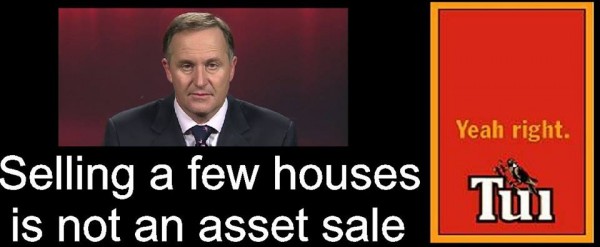
Teaching in a range of schools gives valuable insights into educational issues which are often ignored by politicians. One such issue is transience (where children change schools frequently).
I finished teaching last year at a school in a high-income area of Auckland and I had just two new names added to one of my class rolls during the year.
In stark contrast when I was teaching in South Auckland schools it was typical to have 28 students in a class at the start of the year and the same number on the roll at year’s end. However there would be at least 10 names crossed out with as many new names written in at the bottom.
In other words close to half the class would have moved out and a new half moved in during the year.
Teachers in schools work minor miracles every day to help plug the education gaps for these children on the move between schools. If it was just a few children it wouldn’t be a problem but transience has a huge impact on educational achievement for so many children.
It’s the difference between stable classes where students complete a 12 month course and unstable classes with fragmented learning for so many students.
The Education Review Office identified transience as a “barrier to student learning” as far back as 1997 and numerous studies and reports since then point to this as a significant factor in compounding the problems of poverty which drive disparity in educational opportunity.
Early last year the Child Poverty Action Group updated their research on transience and it paints a dismal but predictable picture of the problem. Transience is associated with high levels of private rental housing, insecure renting arrangements and low rates of home ownership.
A 2001 survey conducted by the New Zealand Principals Federation found that 47% of transient students in decile one schools moved because of housing as compared with 9% of decile 10 students.
Underlining the importance of housing an ERO survey last year showed 78% of secondary schools reported dealing with student problems of household poverty including poor housing or transience related to poverty.
The educational impact of insecure housing is profound. These transient students almost inevitably slip behind at school and will typically leave without qualifications and ultimately struggle to find decent employment. And because private rental housing and low rates of home ownership are a key factor in transience, Maori and Pasifika children are disproportionately affected.
So where are the government plans to stabilise these families so the children can get the best chance at education?
Despite being the largest and most educationally vulnerable group of children which Minister of Education Hekia Parata says are failing at school the word transience never passes her lips. Instead of owning the problem she slags off schools, teachers and even teacher unions as failing these children.
And now the National government is determined to make matters worse.
In previous terms National slashed state house waiting lists and reduced state house tenure to three yearly reviewable tenancies. Now John Key says the government will sell up to 8,000 state houses to property investors and social housing providers.
This will force more families into insecure and increasingly expensive private rental housing.
All the evidence points to this being a recipe to increase transience and reduce educational opportunity for New Zealand’s most vulnerable children.
This is an inconvenient truth for the government which is living in denial of the awful impact of its housing policies on low-income families and the education of their children.
It seems the government hopes that because the child victims are predominantly brown and from the other side of the tracks that so-called middle New Zealand will ignore the issue and allow John Key to carry out his plans regardless.
It’s time we crash tackled these government attacks on our kids and stop Key’s housing policy in its tracks.
Come to the Tamaki Housing Group public meeting 10am at Bhakti Conference Centre, 11 Pleasant View Road, Panmure, Auckland.





